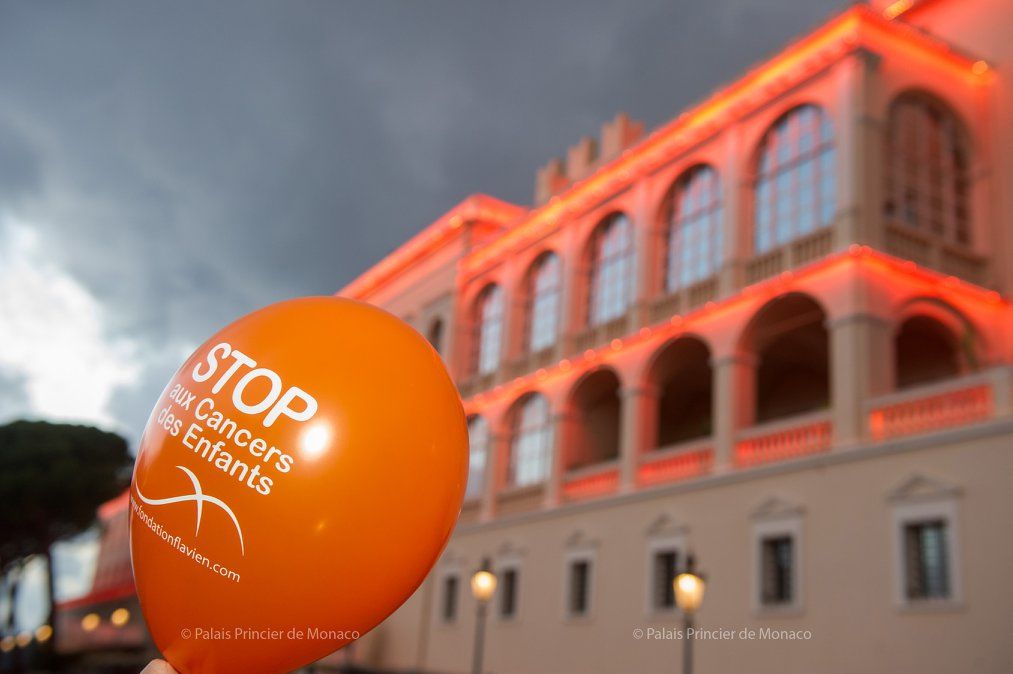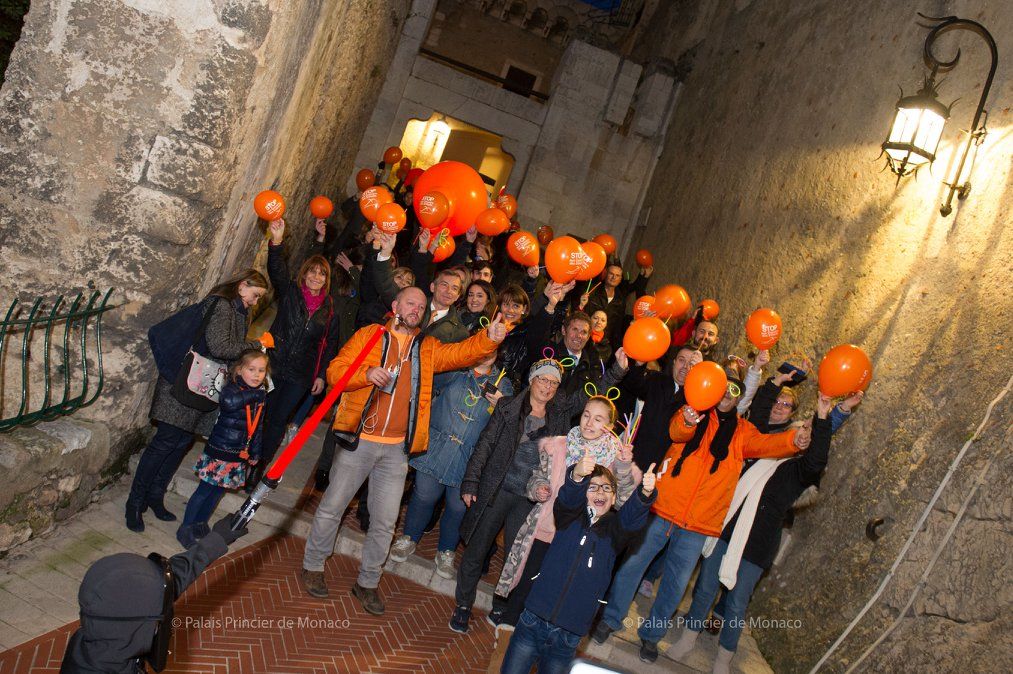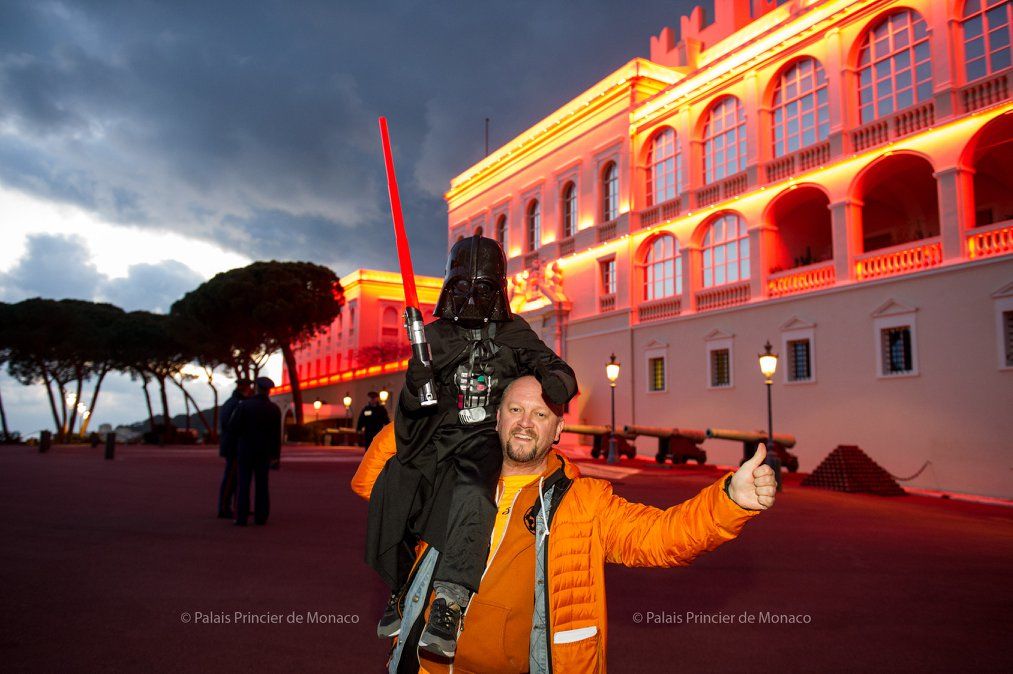
On Thursday, February 15, the Palace brightly displayed the colour orange, as special lights illuminated the building in a tribute International Childhood Cancer Day.
This was an initiative of the Monaco-based Fondation Flavien, which had gathered several hundred people at the Place du Palais for a symbolic march to raise awareness about paediatric cancers.

According to the International Agency for Research on Cancer (IARC), every three minutes a child dies of cancer, but children have a signifcicantly higher surivival rate than adults, which in high-income countries reach an average of 84 percent.
The Fondation Flavien aims to help and support the fight against childhood cancers, rare diseases in children and the families affected by these types of diseases. This is done through research, preventive action, care and support for families as well as the medical profession. The Foundation therefore works hand in hand with the Scientific Center of Monaco – led by Professor Rampal, Scientific Director Denis German and Research Director, Gilles Pagès.

The most used therapeutic model in the treatment of childhood cancers combines surgery followed by chemotherapy and then conventional radiotherapy. In Nice, the technical platform will soon be equipped with a proton therapy device, only the second in France. This is a very precise radiotherapy that can irradiate the tumour by sparing the neighbouring organs to significantly reduce adverse effects.
However, the response of paediatric cancer cells to this type of therapy is still poorly understood and needs to be compared to conventional treatment in order to better appreciate the therapeutic benefits. Although the treatment permits stabilisation of the disease at first, relapses related to an ability to form blood and lymphatic vessels and high metabolic (energetic) activity of residual tumour cells can be observed. These mechanisms, already well known in adult tumours can be countered with new anti-cancer therapies, called “targeted therapies”, not yet used in children for lack of studies and funding.
In 2015, IARC reported worldwide incidence of childhood cancer increased “from 165,000 new cases annually to 215,000 cases for children 14 years and younger” and 85,000 new cases for 15-19 year-olds.